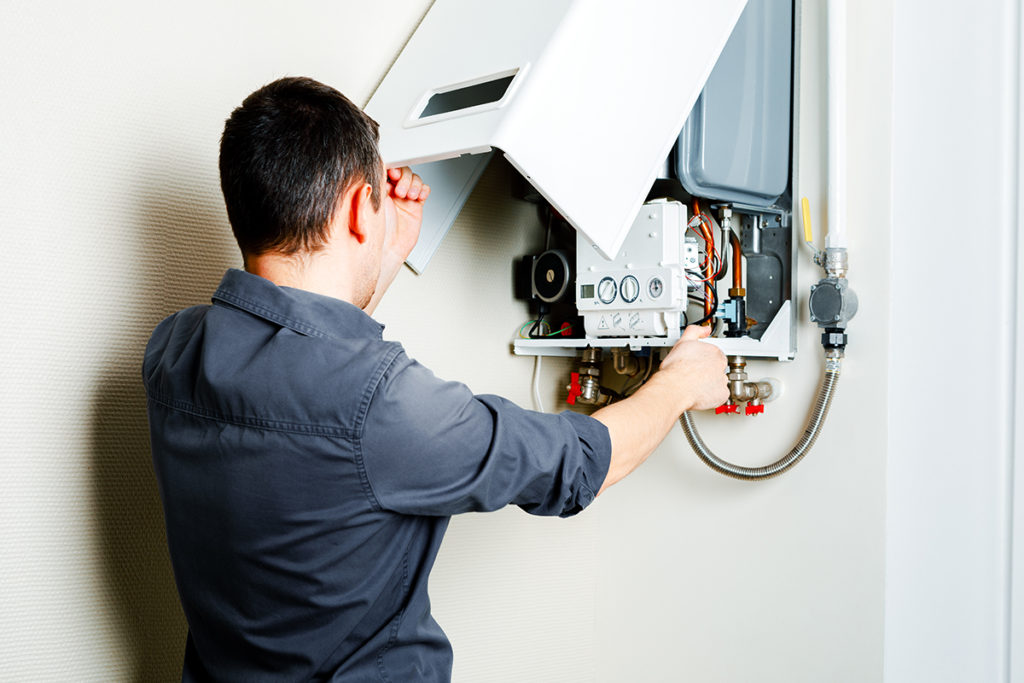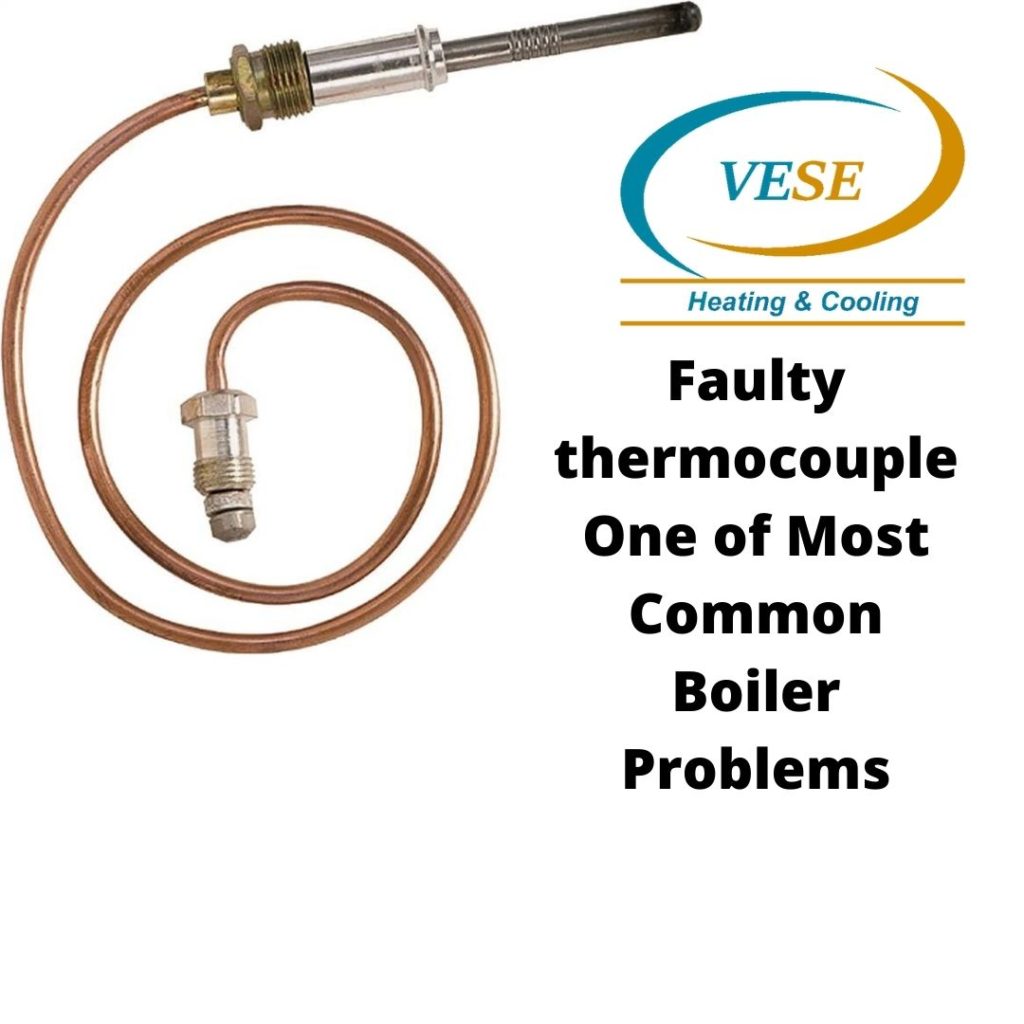Your boiler not working is an inconvenience at the best of times in this article we will discuss nine most common boiler problems.
Fortunately, many boiler problems are common and can be simply repaired by a professional gas technician. Even in some cases, even you can resolve the issue if you have proper skills and knowledge.
To make recognizing a fault as straightforward as possible, modern boilers display a digital boiler error code to let you know exactly what’s causing the fault. Here are the nine most common boiler problems which you can face.

1. Boiler leak
Boiler leaks are most typically caused by a broken part, such as the seal for the boiler pump (this moves hot water around your system) or the pressure relief valve.
You could also be dealing with high boiler pressure – an extreme build-up of pressure can cause the pressure relief valve to open and start leaking water in order to protect your appliance. While bleeding your radiators can help to reduce the pressure. Nevertheless, it’s a good idea to get a professional in to check for obstructions.
Alternatively, if the leaking is specifically around the pipes or tank, it may be a sign of corrosion in which case you’ll likely need elements of your heating system replaced.
Leaks can occur from faulty installation too, so if you’ve had a new boiler fitted, speak to your installer. Never attempt to repair leaks yourself – always call a Gas technician.
2. No hot water
The simplest explanation for a lack of hot water is that the thermostat may have been set too low. Try turning the thermostat high for a short period to help the hot water to return to normal. Moreover, it’s very important to check that the boiler’s clock and timer are correct.
While you’re there, check your boiler for an error code. If there is one, look up what it means online or in your manual – a simple boiler reset may resolve it.
It could also be that the pilot light if you have one, has gone out, so your boiler won’t startup. Unless you smell gas or suspect a leak, follow the manual’s instructions to relight it.
A power supply problem can be a cause too, so see if a switch has tripped on your fuse box and try turning on your lights and sockets.
Try pouring warm water over the frozen section of the pipe, starting from the pipe outlet. When all of the ice has melted, restart your boiler. You can insulate the pipework to prevent the issue from reoccurring.
Worn boiler parts, such as diverter valves and diaphragms (these direct hot water when you turn on the hot tap), can also stop a boiler from working and need to be replaced by an engineer.
If there’s no water from the hot tap or it’s sputtering, the culprit could be an airlock in your hot water system.
3. Thermostat not Working
The first step is to check the thermostat. If you have a zoned system with thermostats throughout your home, you’ll want to increase the temperature on the main one. If it is an old model, you can consider replacing it.
Another cause of a faulty thermostat can be its location – if it’s too close to a radiator or near a draught it could be misjudging the temperature. Moving it to a more neutral spot can help to improve its accuracy.
4. Radiators not heating up
If your radiators aren’t on when you expect them to be, first check that your heating is on the right setting and that your boiler is working properly. If it’s a combi-boiler, make sure that ‘summer mode’ (ie. hot water but not heating) hasn’t been switched on.
Another cause of cold radiators could be air in the system, which prevents hot water from distributing properly. This can be solved by turning all the radiator thermostats to full and running the heating for 10-15 minutes.
Turn the heating off and let the radiators cool for an hour, then bleed the radiator nearest the boiler until water comes out, then repeat for each radiator. You’ll need a radiator key to open the valve and a cloth to soak up the water. Finish by checking that the boiler’s water pressure is correct.
5. Radiator is cold at the bottom
This is a sign that something is stopping the flow of water inside the radiator – usually a sludge of limescale, rust, and water that gathers over time. It’ll need to be flushed by a plumber to remove the sludge. They can add a rust inhibitor that’ll help prevent build-up in the future.
If flushing doesn’t work, the problem may be a blocked pipe or an issue with the pump in your boiler, which again, will require professional attention.

6. Broken boiler
Boiler breakdown is often because of rust build-up or parts, pipes and connections that have broken or corroded inside. For example, a pilot light can keep going out because of a faulty thermocouple.
Similarly, motorized valves can perish over time, resulting in heating and hot water turned on when they’re not needed or vice versa.
Replacement parts installed by a certified Gas technician will solve the issue if the rest of the boiler is in good order. If not, and your boiler is more than 10 years old, you may need to invest in a new one.
7. Low boiler pressure
The water pressure in your heating system should be set between 1 and 1.5 bar – if it’s too low, adjust it following the instructions in your manual or seek professional advice if you’re unsure.
A loss of pressure can also be a sign of an internal leak. While often difficult to pinpoint, the majority of leaks occur at joints, for example where supply pipes meet radiators. Therefore, if a visual examination reveals damp patches or pools of water, or you suspect water is escaping somewhere in the system, get an engineer in to tackle the problem
In case If no signs of leaking are present, you can repressurize your boiler yourself if you feel comfortable. If not, it’s best to seek an expert’s help.
8. Noisy boiler
The type of noise your boiler makes can be a good indication of the problem. For example, a kettling noise can be a sign of a leak in your boiler system. It can also signify a build-up of limescale or sludge – a boiler technician can flush your system to remove the deposits.
A buzzing noise could point to electrical components needing to be replaced. While a loud humming could be a seized part on the boiler pump.
Constant gurgling noises point to issues with water circulation, such as too much air trapped inside the pipes. Bleeding your radiators can resolve this, low water pressure, or a frozen condensate pipe.
If in doubt, it’s always best to seek the opinion of a professional – and don’t forget that getting your boiler serviced annually can help stop small problems from spiraling out of control.
9. Circulation pump
Next, one of the most common boilers problems is the circulation pump. You should feel the motor with your hand to make sure it is hot. In case, if the pump does not work and is cold, check the breaker that supplies power to the boiler. If the motor is very hot, the problem may be with the running capacitor, the motor, or the pump itself. Also, if it is cold and the switch is on, the problem may be with the thermostat or the circulating pump relay.
Most Common Boiler Problems Repair Just Phone Call Away
We want to provide more than just exceptional heating and cooling services, we strive to provide clean air, comfortable homes, and a better life! We take responsibility for keeping your air clean and your home healthy. While most ventilation and air conditioning (HVAC) companies simply focus on getting the job done, we focus on making sure you are happy with the results and enjoy fresh, clean air as a result!
Any work in your Edmonton home for boiler repair services, installation, and annual maintenance of natural gas, diesel boilers, and solid fuel boilers. Get the level of service you deserve when you turn to Vese Heating & Cooling for your indoor comfort needs. Call us at (825)343-6222 today to schedule an appointment with our friendly experts.

